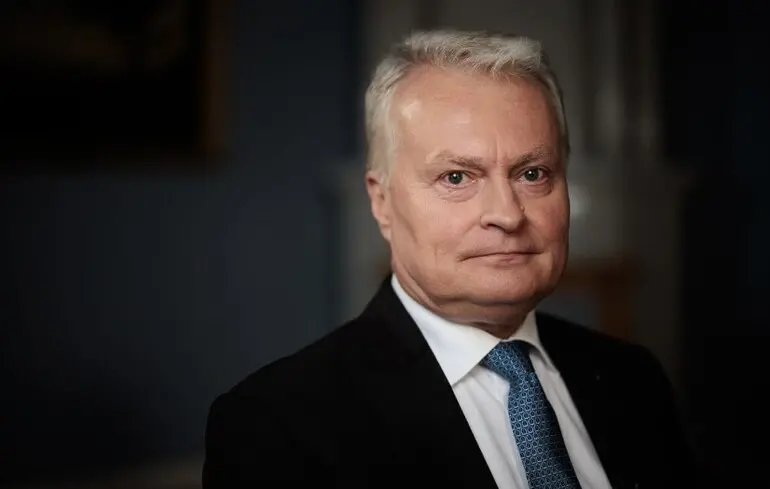Lithuania urges EU to set date for Ukraine’s EU accession and intensifies diplomatic pressure

At a pivotal moment in Ukraine’s European integration process, Lithuanian President Gitanas Nausėda made a direct call to European leaders to establish a clear and binding date for Kyiv’s accession to the European Union.
During an online meeting of the European Council, he proposed initiating the first phase of accession negotiations as early as September, sending a strong message of support to Ukraine.
Nausėda emphasized that Ukraine should become a full member by 2030, and this timeline needs to be embedded in diplomatic agreements.Furthermore, the Lithuanian leader stressed the importance of security guarantees for Ukraine and suggested considering deployment of peacekeeping forces on the country’s territory, with support from the United States.
He also underlined the necessity of swift adoption of the 19th sanctions package against Russia by EU member states.
Nausėda pointed out that lasting peace and justice require holding Russia accountable, particularly through the use of frozen Russian assets for Ukraine’s benefit.On another front, a new political challenge has arisen concerning Ukraine’s European aspirations.
EU Commissioner Ursula von der Leyen called on Kyiv to clarify the situation around a new law that threatens the independence of the National Anti-Corruption Bureau (NABU) and the Specialized Anti-Corruption Prosecutor’s Office (SAPO).
European officials expressed serious concern, emphasizing that these anti-corruption bodies are crucial for Ukraine’s progress towards EU membership.The signing of a law by Ukrainian President Volodymyr Zelensky that abolishes the independence of NABU and SAPO has sparked controversy, potentially undermining Kyiv’s reform efforts.
The EU had been close to opening the first negotiation cluster with Ukraine, following requirements for transparency and rule of law, but postponed the decision in July.
The Union made it clear that without independent anti-corruption institutions, Ukraine’s EU accession prospects would be seriously hindered, and financial assistance depends on the implementation of these reforms.

